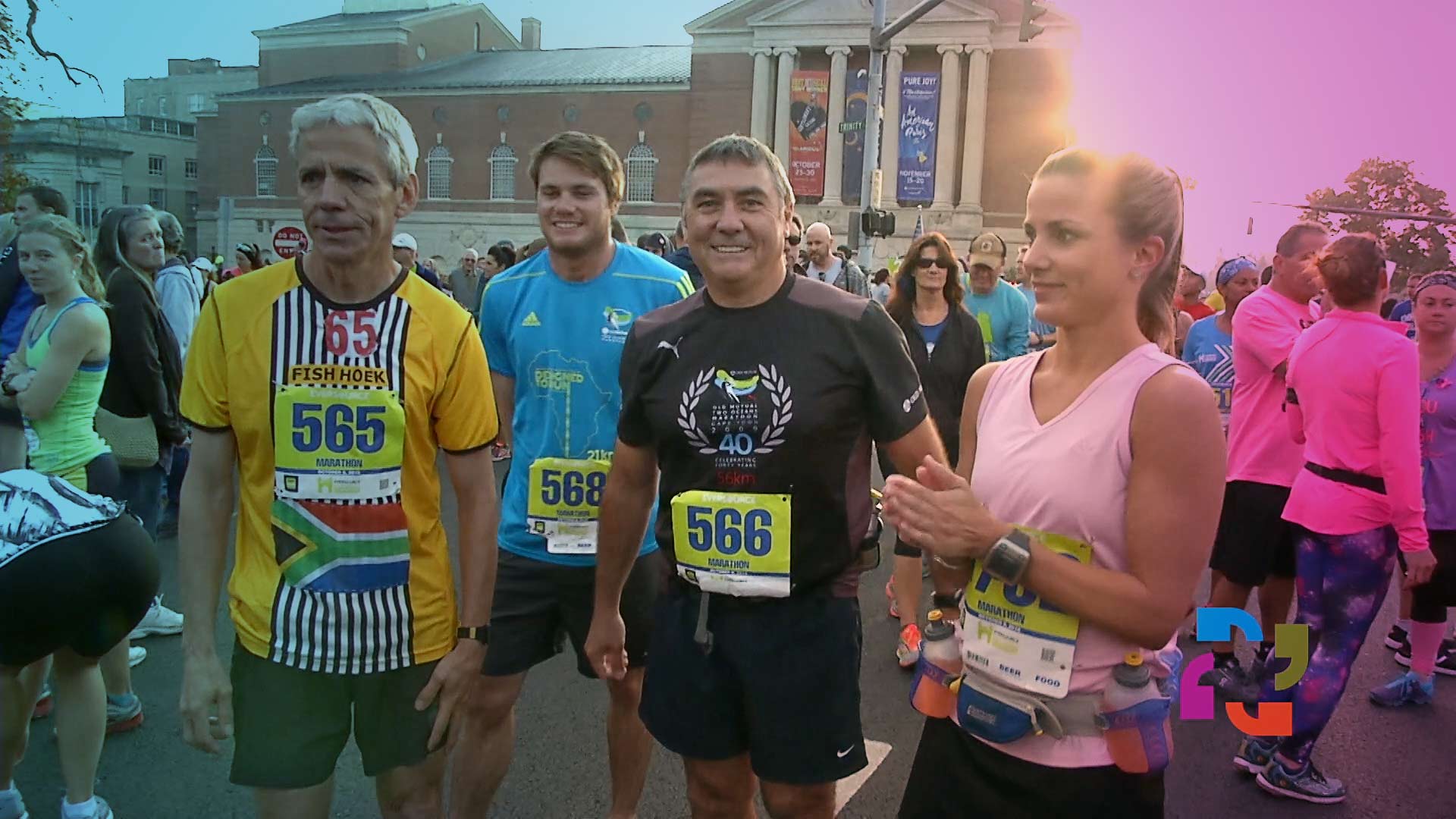John Hayes of West Simsbury, who has run more than 40 marathons, knows how to work his body. But after being diagnosed with Stage 4 kidney cancer last year, he took a chance on his body working for him.
He didn’t have much choice. Already, doctors had removed his kidney. Meanwhile, cancer spread to his neck and stomach. When his body didn’t respond to traditional treatments, Hayes entered a clinical trial through the Hartford HealthCare Cancer Institute’s membership in the Memorial Sloan Kettering Cancer Alliance. The alliance offers patients at Hartford Hospital, Backus Hospital, Windham Hospital, The Hospital of Central Connecticut and MidState Medical Center treatments once available only through research studies at MSK in New York. (These clinical trials have been available since July. For more information, click here.)
With Hayes’ prognosis dire, he entered a clinical trial that treats cancer patients with an experimental technique known as immunotherapy, which uses the patient’s own immune system to fight the disease. It’s a dramatic departure from chemotherapy, a conventional treatment that attacks cancer cells directly.
Hayes, now 61, had struggled with the uncertainty of his illness.
“Not really knowing yet what it was and waiting for the scan and you’re sitting alone,” he says. “It was tough.”
Hayes nonetheless trained for the Oct. 8 Hartford Marathon even as he received immunotherapy treatments twice a week. Former President Jimmy Carter, perhaps the most famous cancer patient to undergo immunotherapy, used a drug that allows immune cells to fight cancer by blocking molecules called checkpoints that cancer needs to shut down the immune system. With surgery, radiation and his newly enabled immune system to fight cancer, Carter showed no recurrence even after doctors discovered melanoma had spread to his brain and liver. The drug Carter used, Keytruda, and others like it are almost prohibitively expensive and are not effective for every patient: Treatment for a year costs about $250,000, which can bankrupt some patients even after insurance.
Hayes, like Carter, responded to immunotherapy.
“After about eight or nine treatments, I went for another scan” he says, “and the tumors had shrunk significantly.”
Flash back to January 2015, when Hayes told his family that all he wanted for his 60th birthday that October was for all of them to run, together, in the Hartford Marathon. Then he was diagnosed with kidney cancer.
“The summer went went from training for the marathon to doctors’ appointments, biopsies, tests and finally a few months of chemotherapy,” his daughter, Wendy Nichols, wrote on a GoFundMe page erected to raise money for a fund in her father’s name for cancer patients in need. “The week after his birthday, he finished chemo and what we thought would be the finish line, a surgery, turned into nothing more than a stop in his battle against cancer.”
A year later, Hayes got his birthday wish as he and his family crossed the Hartford finish line in less than six hours. One more marathon complete, even as his body continues to fight a very different kind of long-term endurance test.
“I say this over and over again,” says Nichols. “He’s my hero.”
For more information, please visit the Hartford HealthCare Cancer Institute website.

